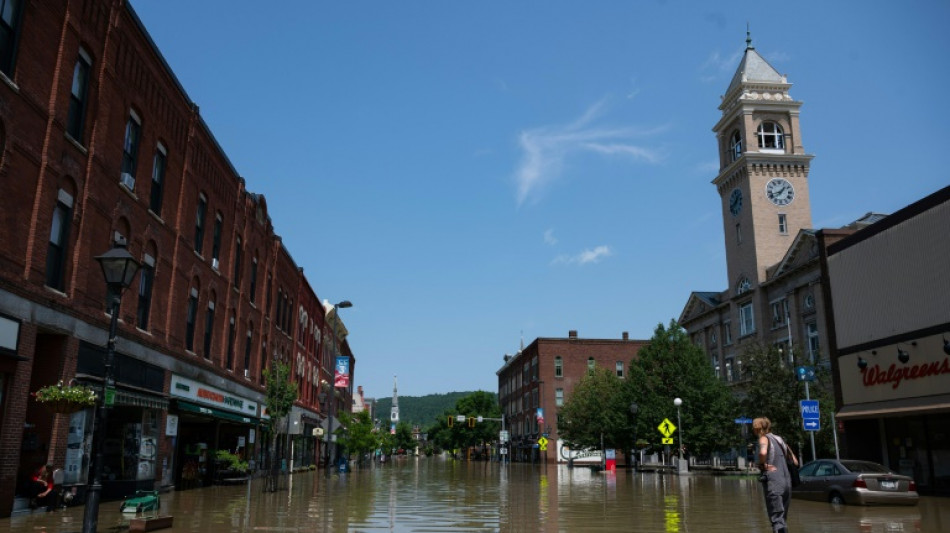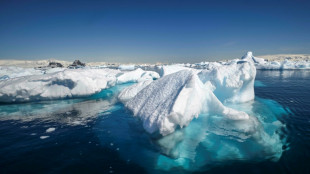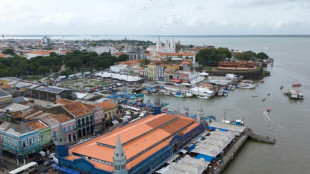

Evacuations as US state of Vermont hit by catastrophic floods
President Joe Biden declared a state of emergency in the northeastern US state of Vermont Tuesday as heavy rains triggered flooding from which dozens of residents were rescued by boat.
The move, which frees up funds to help relief efforts, came after officials warned that a dam close to the state capital Montpelier was nearing capacity and close to spilling into a river.
"This has never happened since the dam was built so there is no precedent for potential damage," Montpelier city manager William Fraser said in a statement late Monday, referring to the Wrightsville Dam.
There were no immediate reports of any deaths or injuries in the state from the rains, which officials said had flooded downtown Montpelier, a city of 8,000 people.
The excessive rainfall -- more than eight inches (20 centimeters) in some places, according to the National Weather Service -- came after flash floods in New York state killed a woman on Sunday.
Much of the northeastern United States, including New York, New Jersey, Connecticut, Pennsylvania, Massachusetts and Vermont, was lashed by rain on Sunday and Monday, washing out bridges and leaving roads impassable.
More than 100 people in Vermont had been rescued from cars and homes as of midday Tuesday, officials said. Authorities were trying to airlift others by helicopter, The New York Times reported.
"We are still in a very dangerous part of this disaster. We are performing active rescues as we speak today," said Mike Cannon, an official with Vermont's Urban Search and Rescue team.
Governor Phil Scott likened the flooding to Tropical Storm Irene, which killed six people in the state in 2011.
"The devastation and flooding we're experiencing across Vermont is historic and catastrophic," he told reporters.
Scott added that despite the sun coming out on Tuesday afternoon, "it's not over."
"We expect more rain later this week which will have nowhere to go in the oversaturated ground," he warned.
More than 600 people also had to be evacuated from their homes in the neighboring Canadian province of Quebec following torrential rains.
In the space of 48 hours, nearly 5.5 inches of rain fell in the Montmorency forest, near Quebec City, causing river levels to rise rapidly, authorities said.
"Similar floods are expected in winter. But this late in the summer? It's unheard of," Josee Poulin, a 60-year-old woman from Sainte-Brigitte-de-Laval, told Le Journal de Quebec.
Scientists say that climate change intensifies the risk of heavy rain because a warmer atmosphere holds more water.
P.Braun--LiLuX



